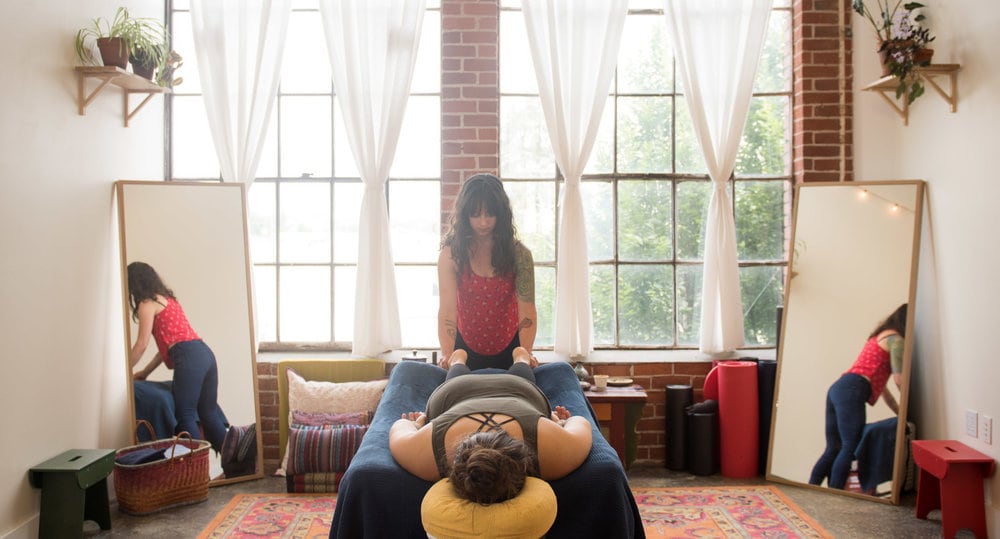This year saw major changes to how Arlington County and Arlington Public Schools run community swim classes. In July, Arlington Public Schools launched the APS Aquatics School for students and residents, while the county opened the Long Bridge Aquatics & Fitness Center in August.
APS’s new program prompted the county’s Department of Parks and Recreation to relocate most of its classes from local public high schools to the new facility near Crystal City. Since September, Long Bridge has been home to all county classes — save youth swim team practices — which officials say centralizes the county’s program and serves more people. (ARLnow)
Freed Bodyworks made regular work of healing those who sought its wellness, massage and therapy treatments for more than a decade. But it couldn’t ultimately save itself after the pandemic halted its business and drained its resources for nearly two years.
The Southeast D.C. holistic wellness center is shutting down Jan. 16, winding down and working to pay off its remaining debts between now and then. (WBJ)

The most recent addition to Georgetown’s fitness scene, Yo! Yoga is an airy, light-filled studio located in a restored building at 2805 M St. NW. The new studio offers teacher-driven yoga classes that are rooted in classic yoga traditions and emphasize proper alignment and movement as the foundation of a sustainable, strong practice.
The space is also open to creatives who are interested in hosting events, such as the Retro Night Market – a reoccurring market currently hosted inside the studio every other Friday from 6pm to 10pm, with vendors selling home decor, health, wellness, beauty and skincare products, men’s and women’s clothing (vintage and original), food and beverages, and art. (georgetowndc)
According to research there is a psychological allure and benefit of being a regular at a neighborhood bar. The practice can help us manage emotions, make friends, maintain relationships, and expose us to new ideas and people.
A study conducted in bars around Oxford, England, examined these relationships in-depth. Led by Oxford psychologist Robin Dunbar and commissioned by the U.K. consumer organization Campaign for Real Ale, “Friends on Tap: The Role of Pubs at the Heart of the Community” suggests that local bars are among the best venues to meet like-minded people, even comparing them to places of worship, and that moderate drinking can improve a person’s social skills, mental health, and overall well-being.
The report also finds that regulars tend to drink less per outing than people drinking on their own or at big downtown bars, citing a group-moderation effect. According to the study, “People are likely to drink less if those around them are behaving in a more measured way, and are, as a result, likely to be less tolerant of socially inappropriate or excessive behavior.” (WCP)



